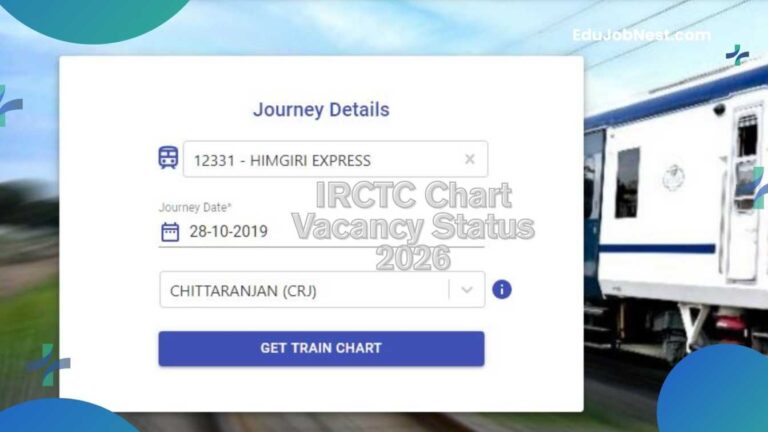
The University of Oklahoma (OU) offers a prestigious nephrology fellowship program that stands out as an exceptional opportunity for international medical graduates (IMGs) seeking advanced training in the United States.
This comprehensive guide explores the University of Oklahoma Nephrology Residency Program, with a focus on its appeal to international students, application requirements, program structure, and why it’s a top choice for aspiring nephrologists.
Whether you’re an international medical graduate or a medical professional looking to specialize in nephrology, this blog will provide valuable insights to help you navigate the journey to joining this esteemed program.
Also Read: Yeshiva University vs Lehman College: Which Is Better for You?
Why Choose the University of Oklahoma Nephrology Fellowship?
The OU Nephrology Fellowship, offered through the OU-TU School of Community Medicine in Tulsa, is a two-year, ACGME-accredited program designed to train skilled, knowledgeable, and compassionate nephrologists.
The program is a collaboration with Kidney Care Oklahoma, combining academic rigor with real-world clinical experience. Here’s why it’s an excellent choice for international students:
-
Diverse Patient Population: Fellows manage a wide range of renal, electrolyte, acid-base, and hypertensive disorders, ensuring exposure to both common and rare conditions.
-
Interdisciplinary Training: The program provides a challenging environment with mentorship from both academic physicians and private practice nephrologists.
-
Comprehensive Curriculum: It covers inpatient and consultative nephrology, dialysis, renal transplantation, and interventional nephrology techniques like kidney biopsies and catheter placements.
-
Research Opportunities: Fellows have ample opportunities for basic and clinical research, enhancing their academic and professional profiles.
-
Board Preparation: Graduates are well-prepared to pass the American Board of Internal Medicine (ABIM) subspecialty certifying examination in nephrology.
For international students, the program’s commitment to diversity and its robust training structure make it an attractive option for building a successful career in nephrology.
Program Structure and Training
The OU Nephrology Fellowship is designed to provide a balanced and in-depth training experience. The program spans two years and includes:
-
Nephrology Consult Service (8–9 months): Fellows gain hands-on experience managing complex renal cases in inpatient and consultative settings.
-
Transplant Medicine (4 months): Training in renal transplantation provides expertise in one of the most advanced areas of nephrology.
-
Dialysis Rotation (4 months): Fellows work in Fresenius Kidney Care Dialysis Clinics in Tulsa and Owasso, mastering peritoneal dialysis and hemodialysis.
-
Outpatient Clinics: Held at Kidney Care Oklahoma, these clinics offer exposure to diverse patient populations and chronic kidney disease management.
-
Interventional Nephrology: Opportunities to learn procedures such as kidney biopsies, tunneled catheter placement, and interventions on arteriovenous fistulas and grafts.
This structured approach ensures fellows develop both the analytical and procedural skills needed for a successful career in nephrology.
Also Read: Loyola University Medical School Fees and Tuition for International Students 2025
Application Process for International Students
International medical graduates face unique challenges when applying for residency or fellowship programs in the U.S. The OU Nephrology Fellowship welcomes IMGs who meet specific eligibility criteria. Below is a step-by-step guide to the application process:
1. Eligibility Requirements
To be eligible for the OU Nephrology Fellowship, international students must:
-
Have completed a bachelor’s degree or equivalent from an institution recognized by their home country’s Ministry of Education.
-
Have completed an accredited internal medicine residency program (in the U.S. or equivalent abroad).
-
Be eligible for a J-1 visa (commonly sponsored for medical training) or hold a valid U.S. work authorization.
-
Demonstrate English proficiency through tests like TOEFL, IELTS, or PTE, unless they are from an English-speaking country or have studied in one.
2. Application Materials
Applicants must submit the following through the Electronic Residency Application Service (ERAS):
-
Personal Statement: Highlight your interest in nephrology, career goals, and why you’re drawn to OU’s program.
-
Curriculum Vitae (CV): Detail your medical education, clinical experience, and any research or publications.
-
Letters of Recommendation: Typically, three letters from faculty or supervisors who can attest to your clinical and academic abilities.
-
USMLE Scores: Passing scores on USMLE Step 1, Step 2 CK, and Step 3 are required.
-
Medical School Transcripts: Official transcripts and proof of degree equivalency.
-
ECFMG Certification: Required for IMGs to verify their medical education credentials.
3. Visa Considerations
Most international fellows enter the U.S. on a J-1 visa, sponsored by the Educational Commission for Foreign Medical Graduates (ECFMG). OU’s Graduate Medical Education (GME) office assists with visa-related documentation, such as the I-20 form. Be sure to:
-
Report any change of address within 10 days to comply with USCIS regulations.
-
Ensure dependents (spouses or children) obtain their own F-2 visas if accompanying you.
4. English Proficiency
OU requires proof of English proficiency for non-native speakers. Acceptable tests include:
-
TOEFL: Minimum score of 80 (internet-based).
-
IELTS: Minimum score of 6.5.
-
PTE: Minimum score of 54. Alternatively, applicants who have completed education in an English-speaking country may be exempt.
5. Application Timeline
-
ERAS Application Opens: Typically in July for the following academic year.
-
Interviews: Conducted between September and November.
-
Match Day: Results are announced through the National Resident Matching Program (NRMP) in December.
-
Program Start: Usually July of the following year.
For specific deadlines and additional requirements, contact the OU-TU School of Community Medicine GME office at Kris-Rider@ouhsc.edu.
Benefits for International Students
The OU Nephrology Fellowship offers several advantages tailored to the needs of international students:
-
Supportive Environment: OU is home to over 2,000 international students from 130 countries, fostering a welcoming and inclusive community.
-
Visa Support: The GME office provides guidance on visa applications and compliance with SEVIS regulations.
-
Career Development: Fellows receive mentorship to pursue academic or private practice careers, with opportunities to network with leading nephrologists.
-
Cultural Adaptation: OU’s Office of International Programs offers resources to help international students adjust to life in the U.S., including housing, transportation, and healthcare guidance.
Also Read: Michigan State University Application Fee for International Students: A Complete Guide for 2025

Life in Tulsa for International Students
Tulsa, Oklahoma, is a vibrant city that offers a blend of urban amenities and a welcoming community, making it an ideal location for international fellows. Here’s what you can expect:
-
Affordable Living: Tulsa has a lower cost of living compared to major U.S. cities, making it easier for fellows to manage expenses on a stipend.
-
Transportation: Public transportation options like Citylink Edmond and OKC streetcars are affordable, while ride-sharing apps like Uber and Lyft are widely available.
-
Healthcare: International students are required to have health insurance through OU, with plans starting at $686 for the fall semester (2024–2025). Emergency services are accessible by calling 911, and the Oklahoma County Health Department provides vaccinations and medical support.
-
Cultural Diversity: Tulsa’s diverse community and OU’s global student body create a supportive environment for international fellows.
Tips for a Successful Application
To stand out as an international applicant:
-
Tailor Your Personal Statement: Emphasize your passion for nephrology and how OU’s program aligns with your career goals.
-
Secure Strong Recommendations: Choose referees who can speak to your clinical skills and adaptability in diverse settings.
-
Highlight U.S. Clinical Experience: If possible, complete observerships or externships in the U.S. to demonstrate familiarity with the healthcare system.
-
Prepare for Interviews: Be ready to discuss your background, why you chose nephrology, and how you’ll contribute to OU’s mission of reducing healthcare disparities.
External Resources for Further Information
-
University of Oklahoma Nephrology Fellowship Program – Official program page with detailed information.
-
ECFMG Certification for IMGs – Guide to certification and visa requirements for international medical graduates.
-
AMA Residency & Fellowship Database (FREIDA) – Comprehensive resource for exploring residency and fellowship programs in the U.S.
Why OU Stands Out for Nephrology Training
The OU Nephrology Fellowship is distinguished by its commitment to training compassionate and skilled nephrologists who can excel in diverse clinical settings. For international students, the program’s supportive environment, robust curriculum, and opportunities for hands-on experience make it a top choice. By choosing OU, you’re not only investing in your medical career but also joining a global community dedicated to improving healthcare outcomes.
Ready to take the next step? Visit the OU-TU School of Community Medicine website or contact the GME office to start your application journey. Become part of a program that’s shaping the future of nephrology while embracing diversity and excellence.




1 thought on “University of Oklahoma Nephrology Residency Program for International Students”